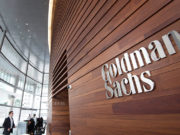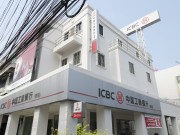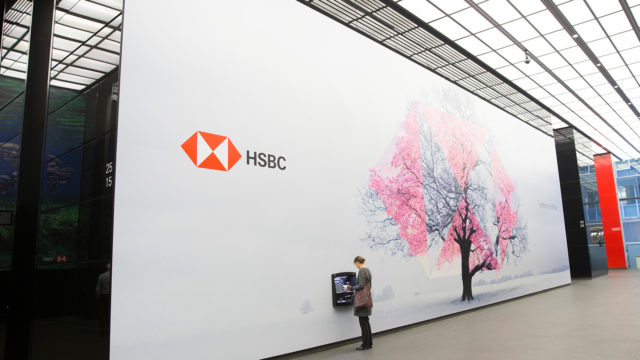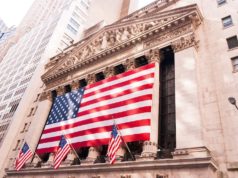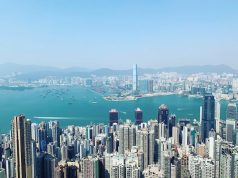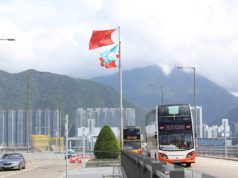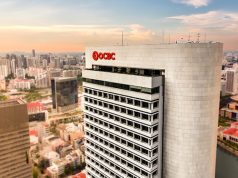HSBC Private Bank Investment Outlook 2023: GDP to Grow 1.8% in 2023, Asia to Grow 4.5%, Interest Rates at 5% in 2023 & 2024, Overweight Fixed Income & Alternatives, Mildly Underweight Equities
7th January 2023 | Singapore
HSBC Private Bank has released the HSBC Private Banking 2023 Investment Outlook (Looking for the Silver Lining), providing key insights into global economy in 2023, key investment trends, portfolio allocation strategy including equities, fixed income, commodities, currencies, private markets, hedge funds & real estate. In 2023, HSBC Private Bank forecasts GDP to grow 1.8% (2022: 2.9%), Asia ex-Japan to grow 4.5% (2022: 3.9%), and interest rates to go up to 5% in 2023 Q1 and staying around 5% in 2023 & 2024. For Portfolio allocation, HSBC Private Bank is mildly-underweight for Equities, overweight for Fixed income, and overweight for Alternatives. For Equities, overweight countries are US, Mexico, Brazil, Switzerland, Mainland China, Indonesia, Thailand and Hong Kong and overweight Sectors are Consumer Staples, Energy & Renewables. For Fixed income, focus on high quality borrowers, keep overall duration below benchmark. For Alternatives, keep core allocations to private markets and real estate. For Real Estate, there is a widening gap in price expectations between potential buyers & sellers, and thus anticipating further capital value declines. For Private Markets Opportunities, IT deals, targets where sectors where public valuations have suffered the steepest declines such as technology & healthcare, and deals in the secondary market to acquire high quality exposures at discounted levels. In Asia, Asian economies continue to stand out as a relative safe haven with resilient domestic fundamentals to weather the recession risks. HSBC Private Bank also published 4 High Conviction Themes in Asia (Reopening Winners, ASEAN Tigers, Asia Green Transformation, Asian Quality Credit), 6 High Conviction Themes Global (American Resilience, Durable Dividends, Recession Survivors, Hedging Against Inflation, Short-to-Medium Dated Quality Credit, DM Financials / Moving Up the Capital Structure), 2 Digital Transformation High Conviction Themes (Smart Mobility, Total Security), 4 Sustainable Investment High Conviction Themes (Energy Transition & Independence, Financing Biodiversity Action, Sourcing Income in a Sustainable Way, The Rise of S in ESG). For investors, there is a huge uncertainties around this outlook. See below for key summary of HSBC Private Bank 2023 Investment Outlook.
“ GDP to Grow 1.8% in 2023, Asia to Grow 4.5%, Interest Rates at 5% in 2023 & 2024, Overweight Fixed Income & Alternatives, Mildly Underweight Equities “

Fan Cheuk Wan, HSBC Global Private Banking & Wealth Chief Investment Officer Asia: “Almost all asset classes have repriced substantially since the start of 2022. However, long-term expected returns have improved notably across all asset classes after the broad-based market selloff in 2022. We find the most material improvement in long-term expected returns from bonds versus cash and equities. We are getting closer to the end of the US tightening cycle, as we expect two more 50bp rate hikes by the Fed in December and February 2023 before it pauses. Given sticky core inflation, we expect the Fed to keep the peak rate at 4.875% throughout 2023. We believe peaking US rates and slowing inflation in 2023 should create a more constructive bond market environment, supporting our overweight allocation to fixed income in the first half of 2023 … … We further diversify portfolios and mitigate market volatility by staying overweight in hedge funds with focus on macro and multi-strategy managers. We also maintain the strategic allocation to private equity and private credit to capture uncorrelated returns.”

Patrick Ho, HSBC Global Private Banking and Wealth Chief Investment Officer North Asia: “We look for more growth supportive policy stimulus to be rolled out after the Central Economic Work Conference in December, further reducing downside tail risks for the property market and supporting recovery of the housing related upstream and downstream sectors. The 16 new measures jointly announced by the People’s Bank of China and China Banking and Insurance Regulatory Commission have substantially stepped up financing support for the property developers. The property sector together with its supply chains contribute close to 30% of China’s GDP … … Within the North Asia equity markets, we are overweight mainland China and Hong Kong and underweight South Korea and Taiwan to reflect headwinds from the downturn in the semiconductor and technology hardware sectors. Our end-2023 targets are 22,470 for the Hang Seng Index, 7,830 for the Hang Seng China Enterprises Index and 4,600 for the CSI 300 Index.”
HSBC Private Bank Investment Outlook 2023

HSBC Private Bank has released the 2023 Investment Outlook (Looking for the Silver Lining), providing key insights into global economy in 2023, key investment trends, portfolio allocation strategy including equities, fixed income, commodities, currencies, private markets, hedge funds & real estate.
Key Summary – 2023 Investment Outlook
- 2023 GDP growth – Decelerate to 1.8% in 2023 from 2.9% in 2022
- 2023 Global CPI inflation – Ease to 6.7% in 2023 from 8.5% in 2022
- While inflation should come down in 2023, it is unlikely to get anywhere near the typical 2% central bank targets
- US Fed Interest Rates – Rates will go to 5% in Q1 and then stay around that level through 2023 & 2024
- Asia ex-Japan – The only region expected to deliver GDP growth acceleration to 4.5% in 2023 from 3.9% in 2022 (Driven by China’s faster-than-expected reopening & policy stimulus to stabilise the property sector).
- Global economic slowdown will remain a major driver for markets.
- Governments have come to the rescue, but as their cost of borrowing has shot up, their ability to act is limited
- Slower economic growth should gradually lead inflation to come down
- Good news is that oil, natural gas and transportation costs are down already, and the shortage of semiconductors is easing
- In 2023 (In summary) – We expect a fundamental market backdrop of slowing global growth.
- China – Notable exception, as its growth is slow but finding a bottom, and Chinese rates are relatively stable
- For investors – huge uncertainties around this outlook
Key Summary – 2023 Portfolio / Investments / Asset Class
- Portfolio – Equities Mildly-Underweight, Fixed income Overweight, Alternatives Overweight
- Equities – Prefer US over Eurozone and UK, Prefer EM Asia and Latin America over EM Europe, Maintain a defensive sector tilt, with a focus on quality & income
- Equities Overweight – US, Mexico, Brazil, Switzerland, Mainland China, Indonesia, Thailand and Hong Kong. Sectors Consumer Staples and Energy (including renewables)
- Fixed income – Focus on high quality borrowers, Keep overall duration below benchmark
- Alternatives – Keep core allocations to private markets and real estate
- Bullish Currencies – JPY, SGD, BRL
- Hedge Funds – Strongest positive conviction on developed market discretionary macro, systematic market neutral and multi-PM strategies. Positive outlook on multi-strategy and multi-PM managers
- Private Markets Opportunities – IT deals, Targets (Sectors where public valuations have suffered the steepest declines such as technology & healthcare), deals in the secondary market to acquire high quality exposures at discounted levels
- Real Estate – Widening gap in price expectations between potential buyers & sellers. We anticipate further capital value declines.
- Real Estate Opportunities – Logistics leasing remains above trend as businesses invest in improving supply chain resilience after several years of disruption caused by the pandemic and geopolitical upheaval.
- Diversified Portfolio vs Cash – Cash rates are now sitting at 4%, levels not seen since 2007. Our estimate of the expected equity risk premium has increased from 4.12% to 4.91% over the last 12 months. Cash upgraded to neutral. Cash still represents the smallest percentage allocation in our diversified multi-asset portfolio
- Asia – Asian economies continue to stand out as a relative safe haven with resilient domestic fundamentals to weather the recession risks.
- North Asian economies – Mainland China, Hong Kong, Taiwan, South Korea and Japan, should feel the largest positive impact of reopening in 2023
- Southeast Asia – Benefit from the strong momentum of overseas travellers’ inflow and tourism boom.
- 4 High Conviction Themes in Asia – Reopening Winners, ASEAN Tigers, Asia Green Transformation, Asian Quality Credit
- 6 High Conviction Themes Global – American Resilience, Durable Dividends, Recession Survivors, Hedging Against Inflation, Short-to-Medium Dated Quality Credit, DM Financials / Moving Up the Capital Structure
- 2 Digital Transformation High Conviction Themes – Smart Mobility, Total Security
- 4 Sustainable Investment High Conviction Themes – Energy Transition & Independence, Financing Biodiversity Action, Sourcing Income in a Sustainable Way, The Rise of S in ESG (Environment, Social & Governance)
1) HSBC Private Bank 2023 Investment Outlook
- 2023 GDP growth – decelerate to 1.8% in 2023 from 2.9% in 2022
- 2023 Global CPI inflation – Ease to 6.7% in 2023 from 8.5% in 2022
- While inflation should come down in 2023, it is unlikely to get anywhere near the typical 2% central bank targets
- US Federal Reserve – Rates will go to 5% in Q1 and then stay around that level through 2023 & 2024
- Asia ex-Japan – the only region expected to deliver GDP growth acceleration to 4.5% in 2023 from 3.9% in 2022 (Driven by China’s faster-than-expected reopening & policy stimulus to stabilise the property sector).
- Global economic slowdown will remain a major driver for markets.
- The Eurozone and the UK are going through a recession
- Recent policy measures reduce downside tail risks for housing markets & ease COVID-related bottle necks
- Economic activity is unlikely to accelerate sharply.
- Sticky inflation is bound to keep rates high for longer, which should continue to slow growth, with a lag.
- Governments have come to the rescue, but as their cost of borrowing has shot up, their ability to act is limited
- Slower economic growth should gradually lead inflation to come down
- Good news is that oil, natural gas and transportation costs are down already, and the shortage of semiconductors is easing
- In 2023 (In summary) – We expect a fundamental market backdrop of slowing global growth.
- China – Notable exception, as its growth is slow but finding a bottom, and Chinese rates are relatively stable
- For investors – huge uncertainties around this outlook
Structural Trends
- Structural support for sustainability themes is enhanced by the short term need to save on costly energy, fertilisers, packaging, transport etc.
- De-globalisation and US-China strategic competition leads to supply chain diversification, re-onshoring and near-shoring, benefiting Mexico, our Total Security and ASEAN Tigers themes.
2) Portfolio Strategy
Equities: Mildly Underweight
- Prefer US over Eurozone and UK
- Prefer EM Asia and Latin America over EM Europe
- Maintain a defensive sector tilt, with a focus on quality & income
Fixed income: overweight
- Focus on high quality borrowers
- Keep overall duration below benchmark
Alternatives: Overweight
- Overweight in hedge fund
- Keep core allocations to private markets and real estate
3) Asset Class
Equities Overweight
- Countries – US, Mexico, Brazil, Switzerland, Mainland China, Indonesia, Thailand and Hong Kong
- Sector – Consumer Staples and Energy (including renewables)
Equities Underweight
- Markets – UK, Germany, Spain, Italy, South Africa, Turkey, South Korea & Taiwan
- Sectors – Industrial & Consumer Discretionary
Global Equities
- Quality & Income
Fixed Income Overweight
- Government bonds – UK Gilts Credit and EM: US, European and UK IG; Australian and New Zealand corporate bonds; GCC and Mexican Hard Currency bonds; Brazilian HC corporate bonds; Mexican and Brazilian Local Currency bonds
Fixed Income Underweight
- Government bonds – German and Japanese government bonds, European Periphery debt Credit and EM: Argentinian, Turkish and Ukrainian Hard Currency bonds; Turkish and Indian Local Currency bonds, Russian debt in Hard and Local currency
Currencies & Commodities
- Bullish – JPY, SGD, BRL
- Neutral – USD, EUR, GBP, CHF, AUD, NZD, CAD, EM FX (including RMB), Gold, Silver, Oil
- Bearish – KRW
Hedge Funds Positive
- Strongest positive conviction on developed market discretionary macro, systematic market neutral and multi-PM strategies
- Positive outlook on multi-strategy and multi-PM managers
Hedge Funds Neutral positive
- Market Neutral Systematic
- Asia Equity long/short
- Structured Credit
Hedge Funds Neutral
- Equity long/short across US, Europe, Technology
- Managed Futures strategies
- Event Driven strategies
- Credit Distressed & Credit Long/short
Hedge Funds Neutral negative
- EM focused macro managers
- Equity Long-Bias Systematic
Private Markets
- Sharp declines in public markets, Private Equity (PE) valuations have dropped and continue to soften, but less than public markets.
- Fundraising and exits have dropped too, but activity levels should still remain in line with historical averages.
- Most PE firms have been forced to re-examine and write down the value of their investments
- Manager performance continues to vary considerably and the gap between top and bottom quartile funds is increasingly apparent.
- We are witnessing a lower number of PE fund closings (3,347 vs 1,6242) as Limited Partners (LPs) are focusing on re-ups, resulting in a thinning of the herd and leading to more “mega-funds”
- General Partners (GPs) biding their time for the right exit opportunities and PE firms holding on to their investments rather than being forced sellers in an unattractive market environment, thus slowing the flow of exits year to date
- Buyouts, IPOs as an exit path suffered the most notable decline.
- Deployment has been slower so far this year as GPs are more disciplined
- Due diligence timelines to lengthen
- GPs are not under pressure to deploy capital and competition around deals has been a bit lower than it has been for a couple of years.
Private Markets Opportunities
- Investor appetite for IT deals remains robust given the long-term trends in increased digitalisation and tech innovation
- Private equity opportunities to take advantage of targets, especially in sectors where public valuations have suffered the steepest declines (eg. technology & healthcare)
- Attractive deals in the secondary market to acquire high quality exposures at discounted levels
Real Estate
- Higher interest rates have pushed up property yields, causing values to decline
- Widening gap in price expectations between potential buyers & sellers.
- We anticipate further capital value declines.
- Weakening economy indicates rental growth should slow in the coming quarters
- Property fundamentals are generally still healthy.
- Open-ended property funds are dealing with a wave of redemption requests
- To raise cash, they may need to sell assets, adding supply at a time of falling demand
- Downward pressure on values although ‘fire sales’ can usually be avoided by managers deferring redemptions.
- Withdrawals are also a function of falls in bond and equity values in portfolios, which have rendered investors over-exposed to property and trigger a need for portfolio rebalancing.
- Office sector has been most impacted by the pandemic due to the permanent shift towards hybrid working.
- Retail property fundamentals have been recovering from the big COVID- pandemic hit. However, the cost of living crisis hurts retail spending.
- Prime retail locations in city centres are struggling with lower footfall from tourism and the reduced frequency of white collar workers going into office.
- Logistics leasing remains above trend as businesses invest in improving supply chain resilience after several years of disruption caused by the pandemic and geopolitical upheaval.
4) Portfolio Positioning – 4 Priorities for Investors
Rebalancing positions towards bonds ahead of peaking interest rates
- Overweight on IG bonds in DM and EM, with 2-5 year maturities
- HiCo themes in Short-to-Medium Dated Quality credit, and DM financials
Building recession resistant portfolios
- Quality stocks and bonds
- Focus on income, partial inflation hedges
- HiCo themes on American Resilience, Asia’s Reopening Winners & Durable Dividends
Risk diversification to mitigate market volatility and geopolitical uncertainty
- Diversification through our hedge funds overweight and core allocation to alternatives
Positioning in structural growth trends supported by tailwinds
- Energy Transition and Independence, ASEAN Tigers, Asia’s Green Transformation
- Financing Biodiversity Action
- Total Security and Smart Mobility
5) HSBC Private Bank Views – When Rates Peak or Growth Bottoms
Current position
- Underweight equities – building recession resistant portfolios
- Overweight bonds but with a focus on short-to-medium maturities and
- quality borrowers
- We moved USD to neutral
After Interest Rates Peak
- Extend duration of bond holdings
- Less challenging environment for tech and other growth stocks
- Stick to quality stocks and bonds
When Economic Growth & Earnings Stabilise
- Add to equity exposure and become less defensive
- Selectively add to credit risk
- Geographical preferences depend on improvement in key local challenges
- USD to decline
6) Diversified Portfolio vs Cash
- Perhaps disheartened by the 2022 market sell-off and enticed by rising interest rates, some investors wonder whether making substantial
- allocations to cash is becoming a viable strategy. We recognise that cash is now less unattractive than it used to be, and we have tactically upgraded it to neutral. But our strategic allocation to cash remains low.
- 2022 has been painful for both stock and bond investors. Following a rapid adjustment of the Fed’s monetary policy
- stance, cash rates are now sitting at 4%, levels not seen since 2007.
- Our estimate of the expected equity risk premium has increased from 4.12% to 4.91% over the last 12 months.
- At its neutral weight, cash still represents the smallest percentage allocation in our diversified multi-asset portfolio
7) HSBC Private Bank on Asia
- Asian economies continue to stand out as a relative safe haven with resilient domestic fundamentals to weather the recession risks.
- China’s recent pivot towards gradual relaxation of the Zero COVID policy and more comprehensive policy support for the property sector are notable drivers to support its gradual growth recovery in 2023
- We expect GDP growth in Asia ex-Japan to accelerate to 4.5% in 2023 from 3.9% in 2022
- We expect North Asian economies, including Mainland China, Hong Kong, Taiwan, South Korea and Japan, should feel the largest positive impact of reopening in 2023
- Southeast Asia should continue to benefit from the strong momentum of overseas travellers’ inflow and tourism boom.
- According to World Travel & Tourism Council estimates, Asia Pacific is expected to revert to pre-pandemic levels in terms of contribution of travel and tourism to GDP in 2023.
- Riding on the reopening tailwinds, we favour quality industry leaders in the travel, airlines, hospitality, food and beverages, Macau gaming and mass consumption sectors in Asia.
- ASEAN economies can also benefit from the reconfiguration and regionalisation of Asia’s supply chains
- Selected ASEAN markets, such as Indonesia, can gain from high commodity prices, proving to be defensive to the inflation shock.
- Indonesia and Thailand have some of the most solid economic momentum within Southeast Asia, thanks to strong consumer demand.
8) HSBC Private Bank High Conviction Themes
4 High Conviction Themes (Asia)
- Asia’s Reopening Winners – industry leaders in travel, airlines, hospitality, food and beverages, Macau gaming & mass consumption sectors)
- ASEAN Tigers – Consumption companies, infrastructure, ASEAN banks, Singaporean REIT
- Asia’s Green Transformation – Energy transition & independence, green infrastructure development & innovation of new energy vehicles technologies. We favour renewable energy equipment makers of solar, wind & green hydrogen, smart grid manufacturers & leaders in the Electric Vehicles (EV) supply chains
- Asian Quality Credit – High quality corporate bonds in Asia, high grade Hong Kong corporate bonds, Chinese TMT bonds and Indonesian hard currency bonds. Prefer short-to-medium duration Asian investment grade bonds
6 High Conviction Themes (Global)
- American Resilience – Energy exporter, opportunities in oil & gas. Shift out of discretionary consumer goods & services to consumer staples
- Durable Dividends – select companies that have sufficiently strong cash flows, eg. Banks benefiting from high interest rate
- Recession Survivors – Defensive sectors, eg. energy, consumer staples and healthcare
- Hedging Against Inflation – No inflation hedge is perfect, 3 Avenues: Energy, consumer staples, infrastructure
- Short-to-Medium Dated Quality Credit – Investment grade with short-to-medium maturities
- DM Financials / Moving Up the Capital Structure – Moving up the capital structure of banks, to Tier 2 and Senior unsecured bonds
2 Digital Transformation High Conviction Themes
- Smart Mobility – Integration of smart technologies into infrastructure & modes of transport for people & goods. Beneficiaries of limiting the use of fossil fuels in transportation
- Total Security – Cybercrime, Protect digital infrastructure, software & confidential data, wider security risks to physical assets and their supply lines have reappeared with many goods including food, water and energy
Sustainable Investments / Future
- 27th Conference of the Parties of the United Nations Framework Convention on Climate Change (COP 27) – Raised urgency compared to other years and the acceptance and activity on sustainability issues
- Good news is that we have everything we need to get to where we need to be in terms of sustainability: we have the understanding, the technology, the capital and increasingly the desire.
4 Sustainable Investment High Conviction Themes
- Energy Transition & Independence – Solar, wind and other renewable sources such as hydro gaining a bigger share. Grids, cables and substations need to be updated. Global energy storage installations.
- Financing Biodiversity Action – Reverse damage to our natural environment. Re-wilding, refilling clear areas of land with the natural wild flora, native grasses, trees and flowers.
- Sourcing Income in a Sustainable Way – Companies which have a stable foundation at the business level, deliver attractive dividends but also do so in a sustainable way.
- The Rise of S in ESG – Companies that perform well in areas such as diversity & inclusion, equality and equity, will have the draw of talent. In turn resulting in better relations with regulatory bodies & clients, and a stronger bottom line. (ESG ~ Environment, Social & Governance)
Fan Cheuk Wan, HSBC Global Private Banking & Wealth Chief Investment Officer Asia:

“Almost all asset classes have repriced substantially since the start of 2022. However, long-term expected returns have improved notably across all asset classes after the broad-based market selloff in 2022. We find the most material improvement in long-term expected returns from bonds versus cash and equities. We are getting closer to the end of the US tightening cycle, as we expect two more 50bp rate hikes by the Fed in December and February 2023 before it pauses. Given sticky core inflation, we expect the Fed to keep the peak rate at 4.875% throughout 2023. We believe peaking US rates and slowing inflation in 2023 should create a more constructive bond market environment, supporting our overweight allocation to fixed income in the first half of 2023.
As the economic growth cycle lags the interest rate cycle, we would rather take rate risk than cyclical risk in our portfolios. After the sharp spike in bond yields, we hold a full overweight position in high-grade bonds across developed markets, emerging markets and Asia with preference for short-to-medium (2-5 years) duration. Historically, returns of equities and bonds become less correlated when the economic cycle slows, improving the diversification benefits of high-grade bonds in the current global downturn.
From a cyclical perspective, we foresee a possible bottoming of global economic data around Q2 or Q3 2023, but the global slowdown will remain a key headwind for corporate earnings in the coming months. We expect consensus earnings forecasts will come down further and may bottom around Q2 2023. To build recession resistant equities portfolios, we favour stock markets which are more resilient and are overweight US, Asian and Latin American equities versus our underweight on Eurozone and UK stocks. We expect the Eurozone and the UK will be going into a recession in Q4 2022 and Q1 2023 while US economic growth will remain below trend at 0.4% in 2023 and 0.9% in 2024. We are looking for stabilisation of earnings momentum as a key milestone allowing us to add risk exposure to equities and take a less defensive sector stance later in 2023. After the sharp correction in valuations in 2022, we seek opportunities from undervalued structural winners exposed to the net zero transition, digital transformation and secular growth in Asia.
We believe the USD bull run has come to an end on the back of peaking US rates. Rate differentials between the USD and other G10 currencies are less likely to widen further, and this removes the main tailwind for USD. We hold a neutral view on the USD and recently upgraded JPY, SGD and BRL to a bullish view. We also upgraded EUR, GBP and INR to neutral against a softer USD. We forecast the RMB will slightly appreciate to 6.90 against a softer USD by the end of 2023. We further diversify portfolios and mitigate market volatility by staying overweight in hedge funds with focus on macro and multi-strategy managers. We also maintain the strategic allocation to private equity and private credit to capture uncorrelated returns.”
Patrick Ho, HSBC Global Private Banking and Wealth Chief Investment Officer North Asia:

“We look for more growth supportive policy stimulus to be rolled out after the Central Economic Work Conference in December, further reducing downside tail risks for the property market and supporting recovery of the housing related upstream and downstream sectors. The 16 new measures jointly announced by the People’s Bank of China and China Banking and Insurance Regulatory Commission have substantially stepped up financing support for the property developers. The property sector together with its supply chains contribute close to 30% of China’s GDP.
After the People’s Bank of China’s recent 25 basis points reserve requirement ratio cut, we expect another 50bp reduction in the reserve requirement ratio in H1 2023 and additional re-lending quotas for targeted areas. We think there is scope for the central bank to cut key interest rates by a further 5bp by the end of this year to provide a stronger policy signal of an easing bias. Within the North Asia equity markets, we are overweight mainland China and Hong Kong and underweight South Korea and Taiwan to reflect headwinds from the downturn in the semiconductor and technology hardware sectors. Our end-2023 targets are 22,470 for the Hang Seng Index, 7,830 for the Hang Seng China Enterprises Index and 4,600 for the CSI 300 Index.”
Patrick Ho, HSBC Global Private Banking and Wealth Chief Investment Officer North Asia and Fan Cheuk Wan HSBC Global Private Banking & Wealth Chief Investment Officer Asia

HSBC Global Private Banking
As part of the HSBC Group, one of the world’s largest banking and financial services organisations, HSBC Private Banking seeks to be the leading international private bank for business owners and their families. It provides clients with wealth, business and family succession solutions in the largest and fastest growing markets around the world. HSBC Private Banking is the marketing name for the private banking business conducted by the principal private banking subsidiaries of the HSBC Group.
The Hongkong and Shanghai Banking Corporation Limited
The Hongkong and Shanghai Banking Corporation Limited is the founding member of the HSBC Group. HSBC serves customers worldwide from offices in 63 countries and territories in its geographical regions: Europe, Asia, North America, Latin America, and Middle East and North Africa. With assets of US$2.992 trillion at 30 September 2022, HSBC is one of the largest banking and financial services organisations in the world.
Sign Up / Register
Caproasia Users
- Manage $20 million to $3 billion of assets
- Invest $3 million to $300 million
- Advise institutions, billionaires, UHNWs & HNWs
Caproasia Platforms | 11,000 Investors & Advisors
- Caproasia.com
- Caproasia Access
- Caproasia Events
- The Financial Centre | Find Services
- Membership
- Family Office Circle
- Professional Investor Circle
- Investor Relations Network
Monthly Roundtable & Networking
Family Office Programs
The 2025 Investment Day
- March - Hong Kong
- March - Singapore
- July - Hong Kong
- July - Singapore
- Sept- Hong Kong
- Sept - Singapore
- Oct- Hong Kong
- Nov - Singapore
- Visit: The Investment Day | Register: Click here
Caproasia Summits
- The Institutional Investor Summit
- The Investment / Alternatives Summit
- The Private Wealth Summit
- The Family Office Summit
- The CEO & Entrepreneur Summit
- The Capital Markets Summit
- The ESG / Sustainable Investment Summit







